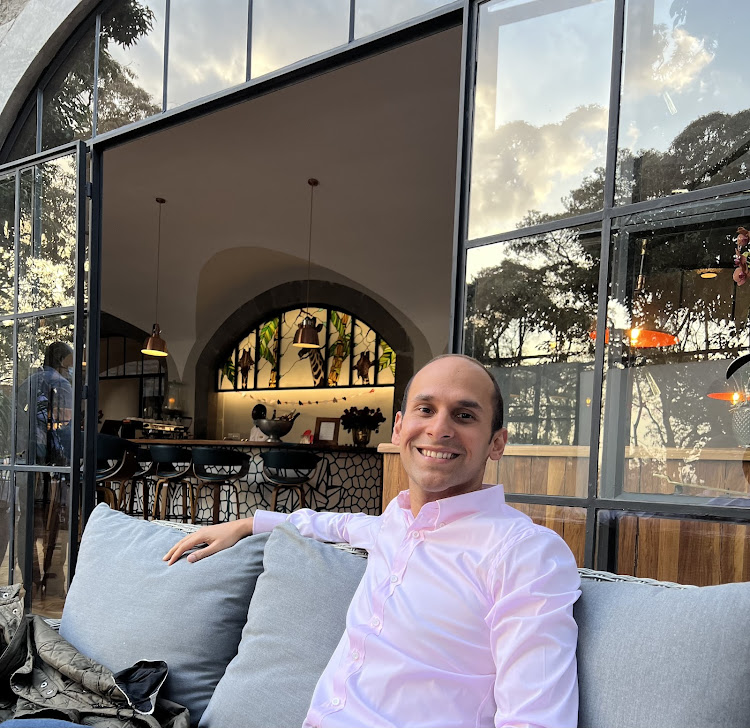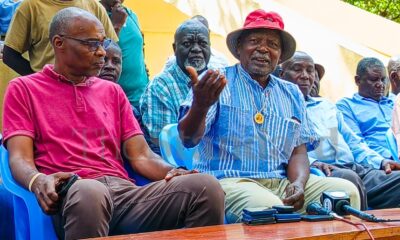Sci & Tech
Kenyan Binance Executive Nadeem Anjarwalla Not Yet Arrested, Police Say
The National Police Service (NPS) spokesperson Resila Onyango has confirmed to the media that they’re unaware of the allegations.

Contrary to reports largely in Nigerian publications, Nadeem Anjarwalla the Binance Executive who escaped from the custody has not been arrested.
While the news of his arrest has been heavily publicized in Nigeria and other tech blogs, police in Kenya have denied making such arrests.
The National Police Service (NPS) spokesperson Resila Onyango has confirmed to the media that they’re unaware of the allegations.
Nigerian publication PUNCH had made the initial claim which has since been debunked.
According to sources close to the investigation, the senior Binance executive who escaped Nigerian captivity in March 25 has been confirmed to being in Nairobi but not arrested.
A source speaking to Kenya Insights say the Nigerian authorities strategically leaked the rumors on various crypto websites in a calculated move to pile pressure on Kenya to make arrest and eventual extradition.
The Nigeria’s Economic and Financial Crimes Commission (EFCC) has been conducting investigations into Mr. Anjarwalla’s whereabouts together with Interpol and the Kenya Police Service.
The extradition process in Kenya is a lengthy process and can’t be hurried, perhaps this could explain the pressure.
Nigerian authorities acknowledged this in their report to PUNCH, “We have found him. We know where he is; he is in Kenya, and we’re working with the authorities to bring him back to Nigeria,” one source disclosed.
“All hands are on deck, and the government and security agencies are collaborating closely with Kenyan authorities and INTERPOL to ensure his expeditious return to Nigeria to face the charges against him,” the reports citing unnamed Nigerian officials said.
Anjarwalla, along with Binance Holdings Limited and Tigran Gambaryan, faces charges including tax evasion, currency speculation, and money laundering amounting to $35.4 million.
While Gambaryan is already in custody, efforts to extradite Anjarwalla are reportedly underway in collaboration with various international law enforcement agencies and governments, including the United States, the United Kingdom, Northern Ireland, and Kenya.
Extradition process in Kenya
Kenya will normally extradite persons of interests to a country that they share a treaty with.
In 2021, a Nigerian national Nnamdi Kanu was arrested in Nairobi on the request of Nigeria to face terrorism charges and was eventually extradited.
Being a Kenyan citizen, Mr. Anjarwalla’s extradition is different and if he were to be arrested, the law allows him to exhaust all the avenues.
Under the current Kenyan laws, any fugitive criminal or other person arrested and sought for extradition is to be taken to court where a magistrate makes orders with regards to their extradition.
A requisition for the surrender of a fugitive criminal, of any country, who is in or suspected of being in Kenya is made to the government by a diplomatic representative or consular officer.
The government may refuse the order for extradition if it thinks that the offence in question is one of political character.
Equally, a fugitive accused of an offence triable in Kenya or one undergoing sentencing under any conviction in Kenya shall not be extradited until their discharge,
Extradition crimes include criminal homicide, injury to persons, abduction, rape, offences relating to narcotics and dangerous drugs, damage to property, and falsification of currency, including counterfeiting and forgery.
Other crimes covered in the country’s extradition laws include forgery, fraud, piracy and organised criminal group offences.
Kenya has been tightening its extradition rules including most recently in March signing bilateral treaties for the extradition of citizens to China and Italy.
Extradition is the process through which a person suspected of having committed an offence in one country and having sought refuge or hidden in another country is rendered back to the country in which the offence is alleged to have been committed to face trial. Extraditions are often based on treaties between countries.
Recent high-profile extradition cases have included the extradition of Asif Hafeez who was extradited to the US from Britain on charges of supplying drugs to Akasha brothers.
The brothers were meanwhile extradited to the US from Kenya in 2017 on suspicion of smuggling heroin.
Currently, Kelvin Kang’ethe, a Kenyan wanted in the US for murdering his girlfriend has been in custody since February and had been fighting his extradition. He’s allowed to access his lawyers as well.
As much as the Americans would want to put him on the next flight to face justice in the US, they have to go through the long process of extradition.
Kenya Insights allows guest blogging, if you want to be published on Kenya’s most authoritative and accurate blog, have an expose, news TIPS, story angles, human interest stories, drop us an email on [email protected] or via Telegram
-

 Business4 days ago
Business4 days agoCooking Fuel Firm Koko Collapses After Govt Blocks Sh23bn Carbon Deal
-

 Business3 days ago
Business3 days agoABSA BANK IN CRISIS: How Internal Rot and Client Betrayals Have Exposed Kenya’s Banking Giant
-

 Politics2 weeks ago
Politics2 weeks agoYour Excellency! How Ida’s New Job Title From Ruto’s Envoy Job Is Likely to Impact Luo Politics Post Raila
-

 Business2 weeks ago
Business2 weeks agoMinnesota Fraud, Rice Saga, Medical Equipment Deal: Why BBS Mall Owner Abdiweli Hassan is Becoming The Face of Controversial Somali Businessman in Nairobi
-

 Americas3 days ago
Americas3 days agoEpstein Files: Bill Clinton and George Bush Accused Of Raping A Boy In A Yacht Of ‘Ritualistic Sacrifice’
-

 News2 weeks ago
News2 weeks agoKenya Stares At Health Catastrophe As US Abandons WHO, Threatens Billions In Disease Fighting Programmes
-

 Politics2 weeks ago
Politics2 weeks agoJaramogi Clan Tells Raila Jr, Winnie Against Disrespecting Their Uncle Oburu, Warns of Curses
-

 News2 weeks ago
News2 weeks agoDCI Probes Meridian Equator Hospital After Botched Procedure That Killed a Lawyer















